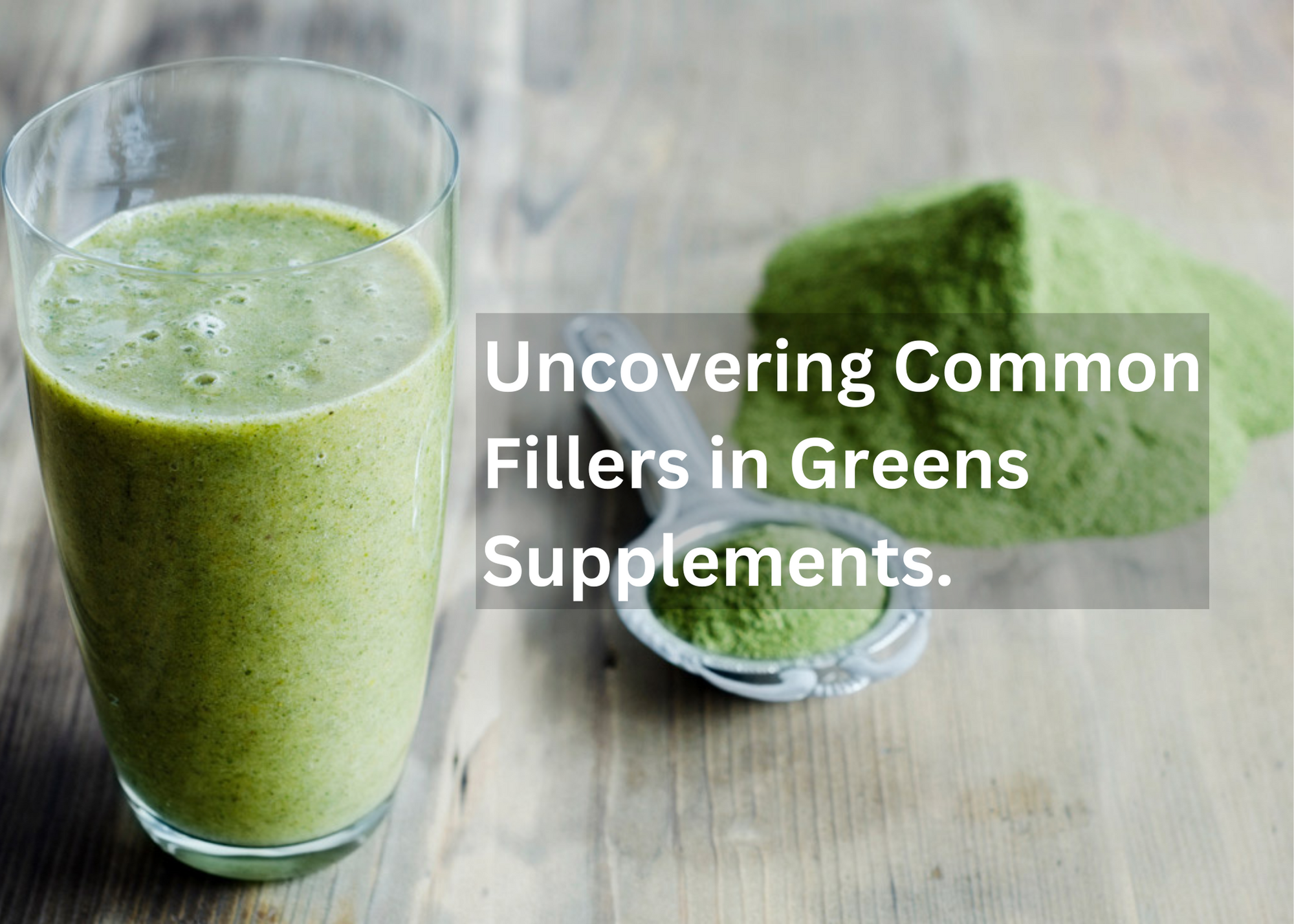Common Fillers in Greens Supplements to Avoid for a Healthier You
2023 Apr 27th - by
Greens supplements have gained immense popularity in recent years, as more and more people are turning to them to improve their overall health and wellness. These supplements typically contain a blend of various fruits, vegetables, herbs, and other superfoods, designed to provide a concentrated source of essential nutrients.
However, not all greens supplements are created equal. Some manufacturers may include fillers and additives that can compromise the quality and efficacy of their products. In this article, we'll explore some common fillers found in greens supplements, such as inulin, lecithin, gums, and others, and why you should avoid them when choosing a supplement for yourself.
1. Inulin
Inulin is a type of soluble fibre derived from various plant sources, including chicory root, agave, and Jerusalem artichoke. While it does offer some health benefits, such as promoting gut health and aiding in digestion, it's often used as a filler or bulking agent in greens supplements.
The problem with inulin is that it can cause digestive discomfort for some people, especially those with sensitivities or intolerances to certain fibres. Symptoms may include gas, bloating, and abdominal cramps. If you're prone to digestive issues, it's best to avoid greens supplements containing inulin.
2. Lecithin
Lecithin is a fatty substance derived from soybeans or sunflower seeds, and it's commonly added to greens supplements as an emulsifier, helping ingredients mix together more effectively. However, lecithin has little to no nutritional value and can trigger allergic reactions in those sensitive to soy or sunflower seeds. Opt for a greens supplement without lecithin to avoid potential allergens and ensure a higher concentration of beneficial nutrients.
3. Gums
Various gums, such as xanthan gum, guar gum, and locust bean gum, are used as thickening agents, stabilizers, or emulsifiers in greens supplements. These additives are generally considered safe for consumption, but they can also cause digestive issues for some people, particularly in larger amounts.
Moreover, while gums don't necessarily pose a significant health risk, they do dilute the concentration of beneficial nutrients in the supplement. It's best to choose a greens supplement with minimal or no gums to maximize the nutrient content and minimize the risk of digestive discomfort.
4. Maltodextrin
Maltodextrin is a processed carbohydrate derived from corn, rice, or potato starch. It's often added to greens supplements as a filler, sweetener, or thickener. However, maltodextrin is a high-glycemic-index ingredient, meaning it can cause a rapid spike in blood sugar levels. This makes it a poor choice for those with diabetes or anyone looking to maintain stable blood sugar levels.
5. Artificial sweeteners, colours, and flavours
Many greens supplements contain artificial sweeteners, colours, and flavours to improve their taste and appearance. While these additives may make the product more palatable, they offer no nutritional value and may even pose health risks. For example, some artificial sweeteners have been linked to digestive issues, headaches, and other adverse effects. It's best to choose a greens supplement with natural sweeteners, such as stevia or monk fruit, and avoid artificial additives.
Conclusion:
When selecting a greens supplement, it's crucial to read the ingredient list and avoid products containing fillers and additives that can compromise their quality and efficacy. By choosing a supplement free of inulin, lecithin, gums, maltodextrin, and artificial additives, you can ensure you're getting the maximum nutritional benefits and support your overall health and well-being.

